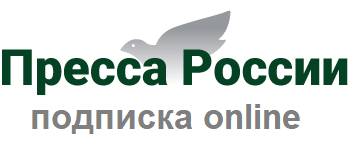Contents
OUR SPIRITUAL VALUES
G.V.MOSKVIN —
Lermontov’s prose psychologism.
To the question of reading and studying the novel “Hero of Our Time”
I.R.MONAKHOV —
N.V.Gogol’s monuments in Moscow
S.L.SHTILMAN —
Puppeteers and marionettes.
Manipulators and manipulations in folklore and Russian classical literature
O.A.MARTYNYUK —
“Sizzling years! Are you mad, are you hopeful?”
Russian writers and revolution
V.P.ZHURAVLEV —
Ballad “Heart” by Dmitry Kedrin.
From the materials to the theme “Folklore traditions in poetry of the 30s of the XXth century”
M.I.BONDARENKO —
Foreign Literature of the “Lost Generation”
SEARCH. EXPERIENCE. SKILLS
Actual problems of teaching literature
I.V.SOSNOVSKAYA —
Specificity of the literature lessons in the context of national traditions in modern time
E.V.TALETSKAYA —
On the Great Patriotic War with reverence, attention, interest
Teaching how to write an essay
G.V.PRANTSOVA —
Types of tasks and exercises for learning the final reasoning essay
Lessons
Y.N.IVANOVA, M.A.STEPANCHIKOV —
Historisms in the N.V.Gogol’s poem “Dead Souls”.
IXth Grade
I.A.GRIGORCHENKO, A.I.POLKANOVA —
Working with dictionaries of different types in preparation for analyzing text.
Translation of the poem by “My soul is dark” by G.Byron and comparison with the translation by M.Y.Lermontov. IXth Grade, humanitarian profile
O.N.KHARITONOVA —
Lilac in the fate of the heroes of the A.I.Kuprin’s story “Lilac Bush”.
VII—VIIIthe Grades
Foreign literature at school
M.E.BOYKOVA —
How not to turn into a monster?
Lesson based on the story of Edgar Allan Poe “The Little Frog”. VIIth Grade
Abstracts and keywords
OUR SPIRITUAL VALUES
G.V.MOSKVIN —
Lermontov’s prose psychologism.
To the question of reading and studying the novel “Hero of Our Time”
Abstract. The article is devoted to the problem of school reading and sensible perception of fiction, in particular Lermontov’s prose. It is important to take into account the most important feature of the writer’s style — its psychologism. Analysis of the psychological techniques used by the writer contributes to the comprehension of the categories which are important for understanding the work: the hero, the activities of the hero, the plot, the idea, the meaning. This approach will help to organize effective work on teaching analytical reading of classical literature.
Keywords: Lermontov’s prose, “The Hero of Our Time”, psychologism, detail, hero, plot, teaching analytical reading, high school.
I.R.MONAKHOV —
N.V.Gogol’s monuments in Moscow
Abstract. The article tells about the history of the N.V.Gogol’s monuments in Moscow (on Nikitsky Boulevard, Gogol Boulevard, Novodevichy Cemetery). The artistic features of these monuments and their perception by Gogol’s admirers are considered.
Keywords: N.V.Gogol, creativity, biography, monuments, N.A.Andreev, N.V.Tomsky, Novodevichy cemetery, Nikitsky Boulevard, Gogolevsky Boulevard.
S.L.SHTILMAN —
Puppeteers and marionettes.
Manipulators and manipulations in folklore and Russian classical literature
Abstract. The author offers to look at well-known fairy tales, such as “Kolobok”, “The Fox and the Grouse”, from an unexpected angle — from the point of view of manipulation. He applies the same approach when analyzing works of Russian classical literature of the nineteenth century.
Keywords: manipulation, folklore, fairy tales, Russian classical literature, fox, bun, grouse.
O.A.MARTYNYUK —
“Sizzling years! Are you mad, are you hopeful?”
Russian writers and revolution
Abstract. The article reflects on the attitude to the revolutionary events of the Silver Age poets — a unique cultural phenomenon of this period, as well as their fate after 1917.
Keywords: Silver Age literature, revolution, crisis, A.A.Blok, S.A.Esenin, N.S.Gumilev, A.A.Akhmatova, O.E.Mandelstam, I.A.Bunin.
V.P.ZHURAVLEV —
Ballad “Heart” by Dmitry Kedrin.
From the materials to the theme “Folklore traditions in poetry of the 30s of the XXth century”
Abstract. The article discusses the ways of using the folk traditions in the D.B.Kedrin’s poetry on the example of the ballad “Heart”. The folklore and literary methods of typification are compared.
Keywords: D.B.Kedrin, folk tradition, ballad, fairy tale, typification, literary character, beautiful and ugly
M.I.BONDARENKO —
Foreign Literature of the “Lost Generation”
Abstract. The article deals with E.Hemingway’s novels “A Farewell to Arms” and E.M.Remarque “All Quiet on the Western Front”. The emphasis is made on problematics and poetics (hero, style, conflict). Both novels are associated with the image of the defeat of a person opposing the war: it either kills or takes away the meaning of existence.
Keywords: literature of the “lost generation”, Hemingway, Remarque, World War I, conceptualization, anti-war pathos.
SEARCH. EXPERIENCE. SKILLS
Actual problems of teaching literature
I.V.SOSNOVSKAYA —
Specificity of the literature lessons in the context of national traditions in modern time
Abstract. The author refers to the methodological traditions of the development of the literature lesson, based on the uniqueness of literature as an academic discipline of the humanitarian cycle, and calls its distinctive features: emotional, aesthetic, spiritual and culturological orientation. The article proves that the teacher should consciously relate to the preparation of a literature lesson, preserve its emotional and aesthetic basis and creative direction, and that the role of historicism is important in the further development and enrichment of methodological theory and practice.
Keywords: concepts, literature lesson specificity, cognitive potential of the lesson, structure, lesson thesaurus, arts dialogue, artistic perception, emotional world of a child, score, resonance, artistic and pedagogical tasks, creativity.
E.V.TALETSKAYA —
On the Great Patriotic War with reverence, attention, interest
Abstract. The author shows a system of work on the study books about the war in the classroom and in extracurricular activities.
Keywords: educational power of books about the war, variety of forms of students’ involvement in reading about the war.
Teaching how to write an essay
G.V.PRANTSOVA —
Types of tasks and exercises for learning the final reasoning essay
Abstract. The author examines the problem associated with writing a final essay and proposes a system for preparing high school students for writing a reasoning essay, as well as types of tasks and exercises for the effective formation of students’ speech skills.
Keywords: final essay, essay-reasoning, thesis-proof part, sample text, speech model.
Lessons
Y.N.IVANOVA, M.A.STEPANCHIKOV —
Historisms in the N.V.Gogol’s poem “Dead Souls”.
IXth Grade
Abstract. The article shows the development of obsolete vocabulary by 9th-graders in the poem “Dead Souls” by N.V.Gogol. The language material is presented, reflecting the diversity of Russian vocabulary of the first half of the XIXth century, facilitating the reading and understanding the Russian classics by modern students. The lesson improves the skills of analyzing the text and the ability to exercise a linguistic sense when analyzing it.
Keywords: Russian classics, outdated vocabulary, analysis, art detail.
I.A.GRIGORCHENKO, A.I.POLKANOVA —
Working with dictionaries of different types in preparation for analyzing text.
Translation of the poem by “My soul is dark” by G.Byron and comparison with the translation by M.Y.Lermontov. IXth Grade, humanitarian profile
Abstract. The article presents the experience of working with dictionaries of different types in a binary lesson. The purpose of this is a comprehensive analysis of the poem by G.Byron, as well as M.Y.Lermontov’s translations. The research method, the method of comparative analysis and the synchronous-diachronic method are used. Comparison with the translation allows to expand the framework of the work.
Keywords: binary lesson, dictionaries, text analysis, artistic world of the poem, category of space and time, images, symbols, biblical images.
O.N.KHARITONOVA —
Lilac in the fate of the heroes of the A.I.Kuprin’s story “Lilac Bush”.
VII—VIIIthe Grades
Abstract. A detailed analysis of the text prepares students to understand the meaning of the title of the story. The content of the symbolic image of lilac is comprehended in a wide artistic context (lyrics of the 19th — 20th centuries). The analysis of the paintings of the same period by P.Konchalovsky and ancient mythology significantly enriches this experience.
Keywords: myth, legend, symbol, lyrical hero, poetic composition.
Foreign literature at school
M.E.BOYKOVA —
How not to turn into a monster?
Lesson based on the story of Edgar Allan Poe “The Little Frog”. VIIth Grade
Abstract. The author teaches students how to read “attentively” in order to comprehend the writer’s idea and the ways of its artistic execution.
Keywords: whether the joke is so harmless, problem issues, group work, attention to the author’s word, revenge, justice.









